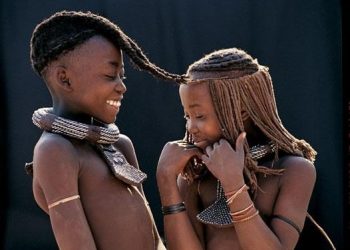Het Heru (also known as Oshun and Nana Afua in Yoruba and Akan) is the deity or concept in our Afrikan culture who represents birth, death and re-birth. As we exit from one realm, we enter into another. Transition therefore, is ontologically paramount to our culture and must be swift as the ways of Ma’at to maintain divine order. The Ndebele of Zimbabwe are part of the Nguni people of Southern Afrika who migrated in the early 1800s when their King Mzilikazi ka Khumalo fled Tshaka Zulu in what is known as KwaZulu in today’s South Afrika. They have settled in the Matebeleland Province of Zimbabwe. They speak a language called isiNdebele which is an older version of Zulu. Het Heru has varied conceptualizations throughout Afrikan cultures. This article will discuss how she is conceptualized by the Ndebele.
Conception
Conception takes place when an ancestor in the spiritual realm is pulled into the womb of an Afrikan woman through the unification of two Afrikan bloodlines. Het Heru is the deity whose crown bears the solar disk held by two cow horns and it is not by coincidence that the female ovaries are shaped in the same way. When a woman was married in Ndebele culture, traditionally the man’s family presented her family cows. We call this cow token lobola and its significance pays tribute to Het Heru in respect of the transition of the ancestor into this world that the journey may be swift.
‘Umfazi ka lotsholwa, kulotsholwa abantwana’ is a saying which teaches that lobola is paid for the children born, not for the wife who is taken from her family. If a child is born without lobola being arranged between two families, the consequences might be a disrupted transition and it is regarded as a violation against the woman and her family. Afrikans have always tried to avoid this in our societies in the past. Lobola is also a sign of respect as this shows that the man is willing and able to provide for his extended family as Umkhwenyana a ‘son-in-law’. In addition, he will also present gifts to the woman’s parents in a gesture that acknowledges them as respected grandparents of his child – the ancestor re-born, brought into the world under respectable circumstances.
Cet article vous intéresse et vous voulez le lire en entier ?
Accéder à tous les contenus Premium. Plus de 2000 articles et ebooks









